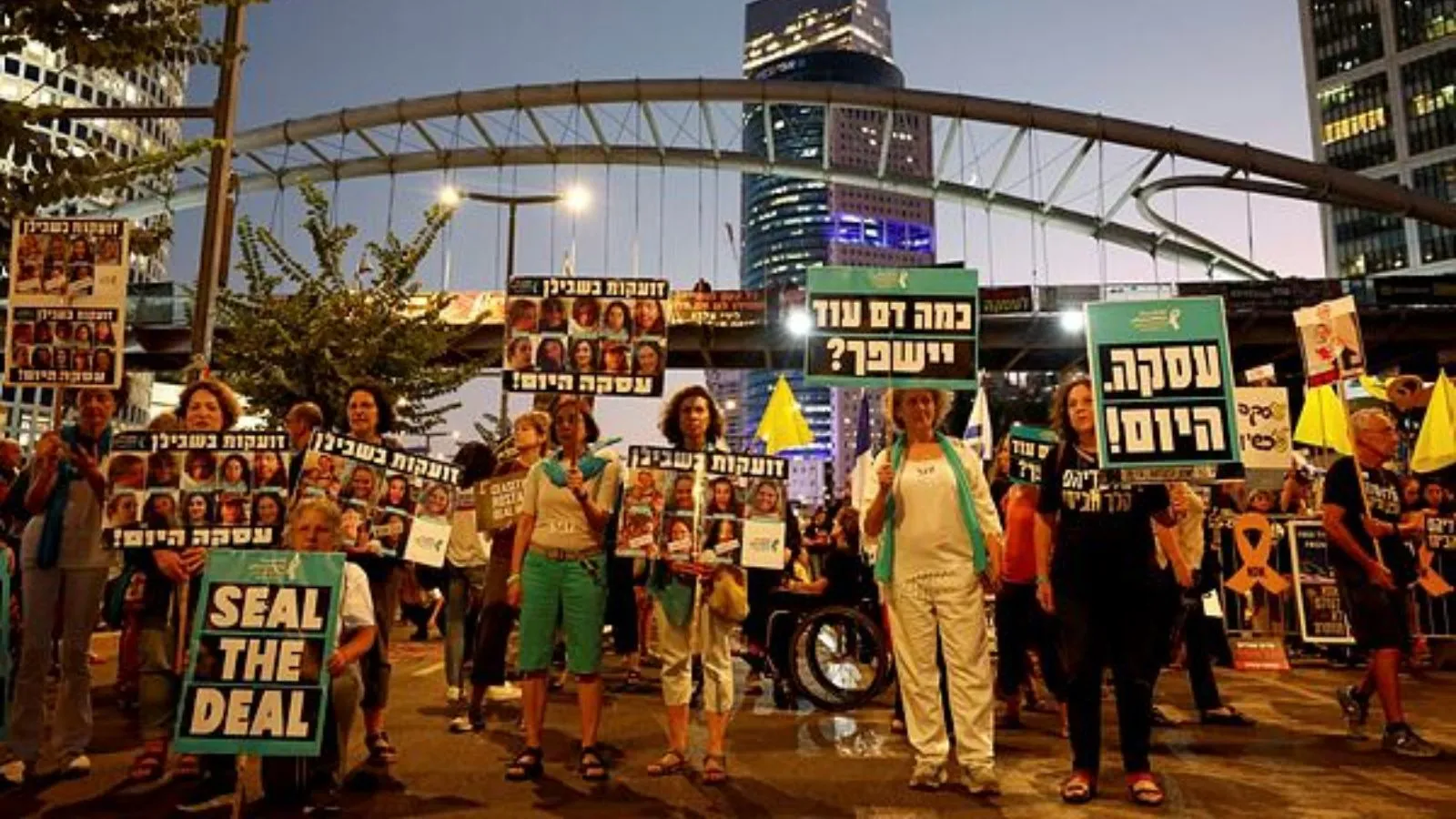At the dawn of the internet age, it was clear that we would now know more about distant realities, in real time, than ever before. It followed that hiding misdeeds, like war crimes and other forms of mass violence, would now be almost impossible. This global awareness was expected to lead to mass mobilisation against such atrocities.
On February 15, 2003, all these expectations were realised when over 15 million people in 600 cities across the world held coordinated protests against the impending invasion of Iraq by the US and UK. This is now known as the largest anti-war protest in history.
Twenty-one years later, what is the status of the hopes raised by both the birth of the internet and that history-making event?
Now, thanks to social media, details of the horrific suffering inflicted by war are even more commonly known. In response to this, there have been passionate protests in many countries, against Israel’s war on the Palestinians. But in most societies, the protesters appear to be marginal. There has been no mass global upsurge to match the scale of the atrocities being inflicted in Gaza and Lebanon.
It is time to sift false hopes from the actual unfolding of reality. In this context, we first need to understand, empathically, the evolutionary limitations of human beings. Secondly, there is the excruciating task of fully facing the collapse of democracy — or the promise of it which arose from the ruins of World War II with its concentration camps, Hiroshima and Nagasaki.
First, the good news: Violence and war are not intrinsic to the human condition. This has been established by a combination of natural and social scientists. Those seeking more details can refer to the Seville Statement on Violence, the outcome of a scientific enquiry supported by UNESCO in the mid-1980s.
Yes, there is historical evidence of brutal violence among human beings. But this behaviour was the exception, not the rule. Therefore, the evolutionary journey has limited most human beings’ capacity to cope with either physical or mental trauma.
Today, we live in a time of information overload, including graphic images of human suffering. It is commonly lamented that too many people appear indifferent to this information about the suffering of others. It is much more likely that there is an instinctive self-protection at work — people unconsciously filter-out what the psyche cannot deal with.
The bad news is that the powers-that-be rely on this factor of human fatigue to push through unjust and lethal wars. This “advantage” has been compounded by the fact that in too many countries the institutions that were to make democracy meaningful have failed the people.
Global calls to try former President George Bush Jr and former Prime Minister Tony Blair for war crimes have failed. This is despite the British government’s “Iraq Inquiry” by Sir John Chilcot which concluded, in 2016, that the invasion of Iraq had been unnecessary. The Chilcot Report, as it is commonly known, said that the intelligence on weapons of mass destruction was wrong, that Saddam Hussain had not been an immediate threat and that both the US and UK had undermined the authority of the United Nations Security Council. Nevertheless, in 2017, British courts ruled that Tony Blair should not face prosecution for his role in the Iraq war.
Precisely because the 2003 global protest was historic in size its perceived failure makes the present situation more painful and debilitating. Not only did that war happen but those responsible for it were never held accountable.
So what will work? This haunting question has no clear answers — either on the formal stage of geopolitics where leaders of nation-states play or among human rights activists and other civil society organisations who are protesting against the genocide in Gaza.
It is not a coincidence that civil society organisations in many societies appear weaker today than they did 20 years ago. The World Social Forum, whose birth in 2001 played a crucial role in the epic protest of 2003, is now a pale shadow of what is set out to be.
Often, in daily life, this low ebb encourages many advocates of justice to feel that ramping up the feelings of outrage will help, that it will somehow change the situation. However justified and natural the outrage may be, it is not itself the solution.
There is a need to review the core values that make anyone “progressive”. Do these core values include compassion, brotherhood and nonviolence? What is the nature of power, in a raw sense, today, and what are the diverse forms it takes? What are the ways in which 21st century power can be countered and challenged?
Grappling with such questions requires courage, wisdom and a fresh imagination. In a time when circumstances push us towards blinding rage, there is that much more need to think deeply with clinical detachment.
Two risks make this introspection imperative. One, we may delude ourselves into thinking that if only we improved the quantity and quality of old methods, victory would be at hand. Two, and this is much worse, the younger generation may lapse into utter hopelessness — succumbing to the falsehood that this is the only way power can work among human beings.
This is the dystopic claim now being offered by those who exert force on all “sides” in different names. Namely, that only force works — so make it lethal.
No defeat would be worse than to accept this dystopic projection.
Bakshi is an author and founder of the Youtube channel ‘Ahimsa Conversations’



